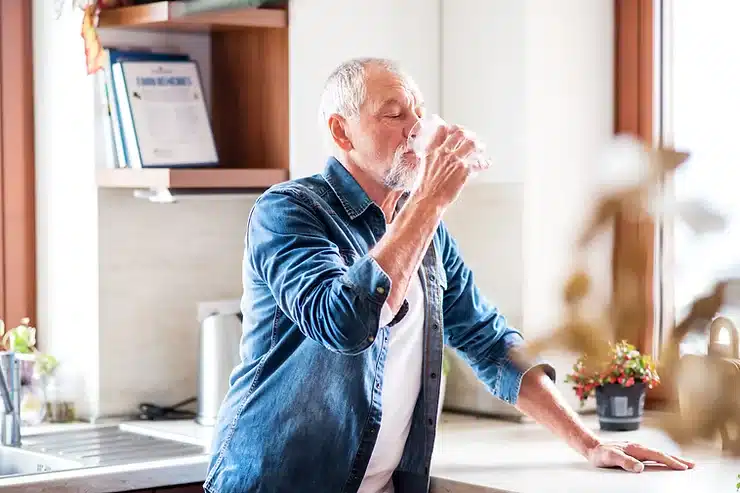Hydration for the Elderly. As we age, our bodies go through a number of changes that can impact our nutritional needs and hydration levels. For the elderly, proper nutrition and hydration are crucial for maintaining overall health and wellness, and can also help to prevent a range of health problems. In this blog, we will discuss the importance of nutrition and hydration for the elderly and provide tips for promoting healthy eating and drinking habits.
The Importance of Nutrition for the Elderly As we age, our bodies require fewer calories, but we still need the same amount of nutrients to maintain optimal health. In fact, many elderly individuals are at risk for malnutrition due to a variety of factors, such as a decreased sense of taste and smell, difficulty chewing or swallowing, and decreased appetite. Eating a well-balanced diet that includes a variety of nutrient-rich foods is important for the elderly, as it can help to prevent or manage chronic health conditions, such as heart disease, diabetes, and osteoporosis. A healthy diet can also boost energy levels, improve cognitive function, and enhance immune function, which can help to ward off infections and other illnesses.
Tips for Promoting Healthy Eating Habits in the Elderly
-
Encourage variety: Encourage the elderly to eat a variety of nutrient-dense foods, including fruits, vegetables, whole grains, lean proteins, and low-fat dairy products. Eating a variety of foods ensures that the body gets all of the essential vitamins and minerals it needs to function properly.
-
Offer smaller, more frequent meals: Many elderly individuals have a decreased appetite or difficulty eating large meals. Offering smaller, more frequent meals throughout the day can help to ensure that they are getting the necessary nutrients and calories they need to maintain their health.
-
Address dental issues: Dental problems can make it difficult for the elderly to chew and swallow certain foods. Encourage regular dental check-ups and provide softer or pureed foods if necessary.
-
Make meals social events: Eating with others can make mealtimes more enjoyable and encourage healthy eating habits. Encourage socialization during meals by eating together with friends or family members.

The Importance of Hydration for the Elderly
Tips for Promoting Hydration in the Elderly
-
Encourage regular fluid intake: Encourage the elderly to drink fluids throughout the day, even if they do not feel thirsty. Offering fluids with meals or snacks, such as water, milk, or 100% fruit juice, can help to increase overall fluid intake.
-
Avoid sugary or caffeinated beverages: Sugary or caffeinated beverages can actually dehydrate the body, so it is important to encourage the elderly to choose water or other non-caffeinated, non-sugary beverages instead.
-
Monitor medications: Some medications can cause dehydration as a side effect. Encourage regular check-ins with healthcare providers to monitor medication use and hydration levels.
In conclusion, proper nutrition and hydration are important for the elderly in order to maintain overall health and wellness. Encouraging healthy eating and drinking habits can help to prevent or manage chronic health conditions, boost energy levels, and enhance cognitive function. By following the tips outlined in this blog, caregivers and loved ones can help to ensure that the elderly are getting the necessary nutrients and fluids they need to thrive.
Our team includes registered nurses, licensed practical nurses, certified nursing assistants, home health aides, and other healthcare professionals, all of whom have years of experience in the home care industry. We work together to provide comprehensive care that encompasses both medical and non-medical services, helping our clients maintain their independence and live with dignity in their own homes.
With our decades of experience, we have developed a deep understanding of the home care industry and the best practices for providing high-quality care. We are dedicated to staying up-to-date on the latest advances in care delivery, and we are committed to providing our clients with the most effective, evidence-based care.
At our core, our team is driven by a deep commitment to our clients and their families. We know that home care can be a difficult and challenging journey, and we are here to provide the support, guidance, and care that our clients need to thrive. Our team members are not only experienced professionals, but also compassionate and caring individuals who are dedicated to making a difference in the lives of our clients.
- How Companion Care Can Help Your Senior Parent Stay Healthy At Home - April 7, 2025
- How Can Family Caregivers Prepare for Respite Care? - March 27, 2025
- Symptoms of Lung Cancer - March 6, 2025




